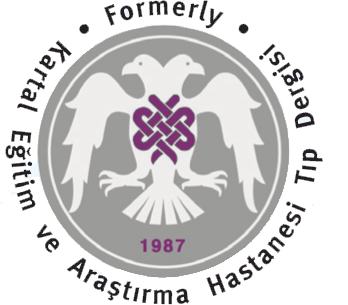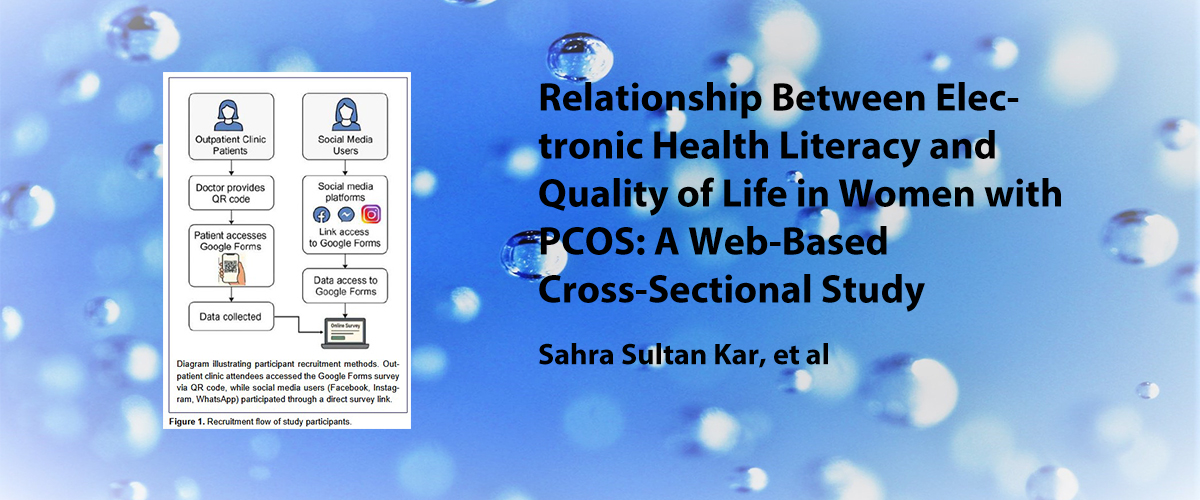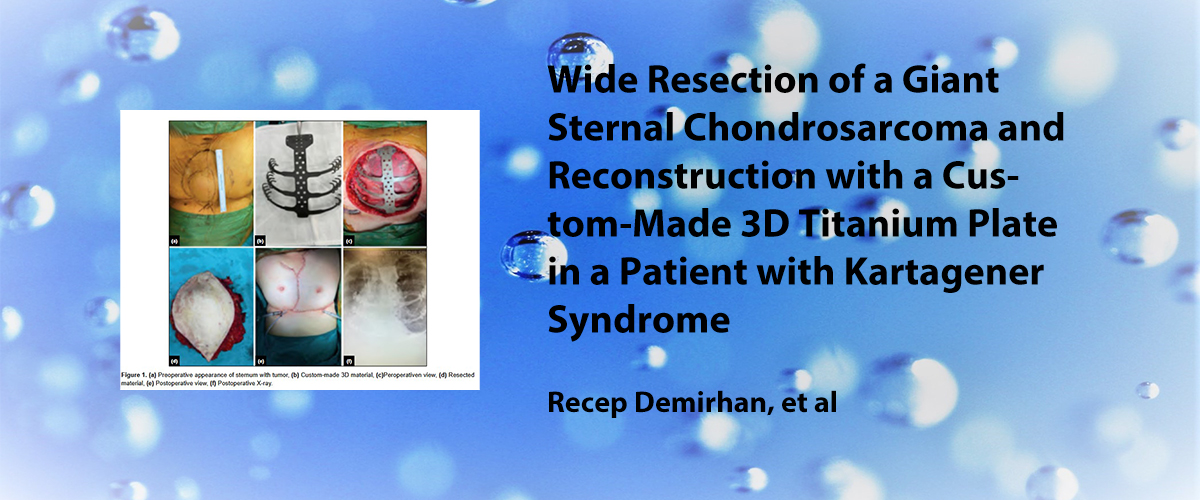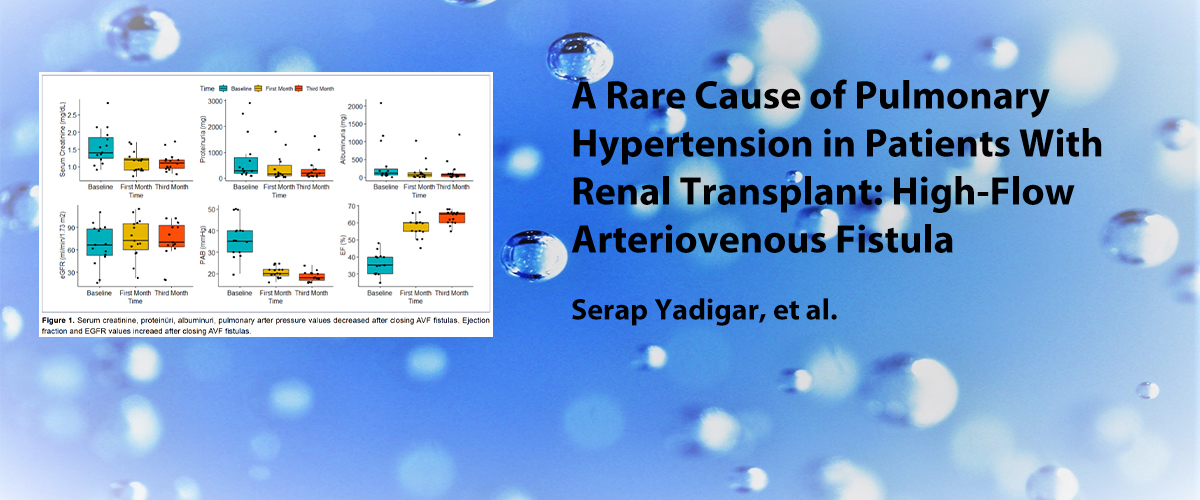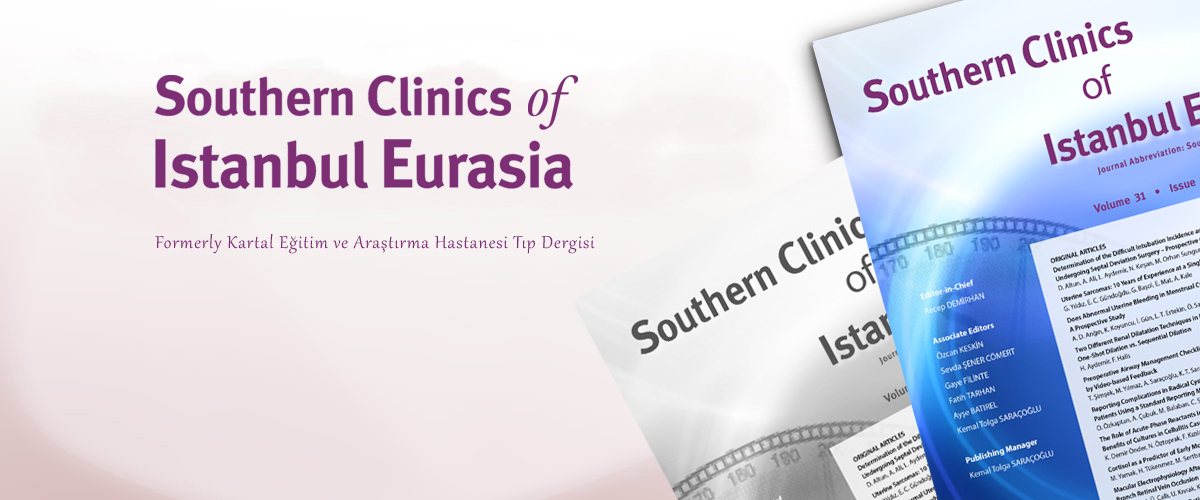ISSN : 2587-0998
Transparankimal Testis Sütür Fiksasyonu Yapılmaksızın Dartos Poş Orşiopeksi Sonuçlarımız
Yeliz Kart1, Canan Öztürk21Süleyman Demirel Üniversitesi, Çocuk Cerrahi Kliniği, Isparta, Türkiye2Dr.Lütfi Kırdar Şehir Hastanesi, Çocuk Cerrahi Kliniği, İstanbul
Amaç: İnmemiş testis tanısı ile transparankimal sütür fiksasyonu yapılmaksızın orşiopeksi uygulanan çocuklarda operasyon sonuçlarını
değerlendirmek.
Gereç ve Yöntem: Bu çalışmada geriye dönük olarak Ekim 2013Ocak 2020 tarihleri arasında inmemiş testis nedeniyle ameliyat edilen 347 olgu ele alınmıştır. Biron beş yaş arası inmemiş testis tanısı ile ameliyata alınan hastalarda testis dartos poşuna yerleştirildi ve poş her iki yanlardan daraltıldı. Testis parankim dokusuna zarar vermemek ve spermatogenezi olumsuz etkilememek amacıyla transparankimal sütür
fiksasyonu uygulanmadı. Hastalar ameliyat sonrası komplikasyonlar, ameliyatın başarı oranı ve nüks açısından değerlendirildi.
Bulgular: Transparankimal sütür fiksasyonu uygulanmaksızın dartos poş daraltılarak orşiopeksi uygulanan 347 hasta değerlendirildi. 338
hastanın takibinde testislerin fizik muayene ile skrotumda olduğu, ameliyat sonrası altıncı ayda ve birinci yılında çekilen skrotal ultrasonografide testis boyutlarının normal olduğu görüldü. Yedi hastaya nüks nedeniyle reoperasyon, iki hastaya atrofi nedeniyle orşiektomi uygulandı.
Sonuç: Yapılan bazı deneysel çalışmalarda testis parankiminden geçilen sütürün testis parankim dokusunu zedelediği ve germ hücre gelişimini etkilediği saptamıştır. Bu nedenlerden dolayı testis skrotuma gergin olmayacak şekilde iniyorsa ve dartos poşu testis skrotuma indirildikten sonra her iki yanlardan nüks olmayacak şekilde daraltılıyorsa, testis parankiminden geçilecek sütür bu dokuya histolojik düzeyde zarar verebileceğinden testis parankimal fiksasyon uygulanmayabilir. Bu çalışmada %97.4 gibi başarı oranı göz önünde bulundurulduğunda spermatogenezi olumsuz etkilememek için, uygun hastalarda testis parankiminden geçmeden başarılı bir orşiopeksi yapılabileceği görüldü.
Anahtar Kelimeler: İnmemiş testis, sütür fiksasyon, orşiopeksi
Our Dartos Pouch Orchiopexy Results Without Transparenchymal Testicular Suture Fixation
Yeliz Kart1, Canan Öztürk21Department of Pediatric Surgery, Süleyman Demirel University Faculty of Medicine, Isparta, Turkey2Department of Pediatric Surgery, Dr. Lütfi Kırdar City Hospital, İstanbul, Turkey
Objective: To evaluate the operation results in children with the diagnosis of undescended testis who underwent orchiopexy without fixation of transparanchymal sutures.
Methods: In this study, 347 patients who were operated on for undescended testis between October 2013January 2020 were retrospectively reviewed. The testis was placed in the dartos pouch and the pouch was narrowed on both sides in patients. Those who underwent surgery with the diagnosis of undescended testis were between the ages of 1 and 15. Transparenchymal suture fixation was not applied in order not to damage testicular parenchymal tissue and adversely affect spermatogenesis. The patients were evaluated in terms of postoperative complications, operation success rate, and recurrence.
Results: 347 patients who underwent orchiopexy by narrowing the dartos pouch without transparenchymal suture fixation were evaluated. In the physcial examination performed in the follow-up of 338 patients, it was observed that the testicles were in the scrotum, and the testicular dimensions were normal in the scrotal ultrasonography performed at the 6th month and 1st year postoperatively. 7 patients underwent reoperation due to recurrence, 2 patients underwent orchiectomy for atrophy.
Conclusion: In some experimental studies, it was found that the suture passing through the testicular parenchyma damage the testicular parenchyma tissue and affect the germ cell development. For this reason, if the testicle descends into the scrotum without tension, and the dartos pouch is narrowed on both sides without recurrence, testicular parenchymal fixation may not be applied because the suture to be passed through the testicular parenchyma may damage this tissue histologivally. Considering the 97.4% success rate in this study, it was seen that successful orchiopexy could be performed without passing through the testicular parenchyma in suitable patients in order not to adversely affect the spermategenesis.
Keywords: Orchiopexy, suture fixation; undescended testis.
Makale Dili: İngilizce

